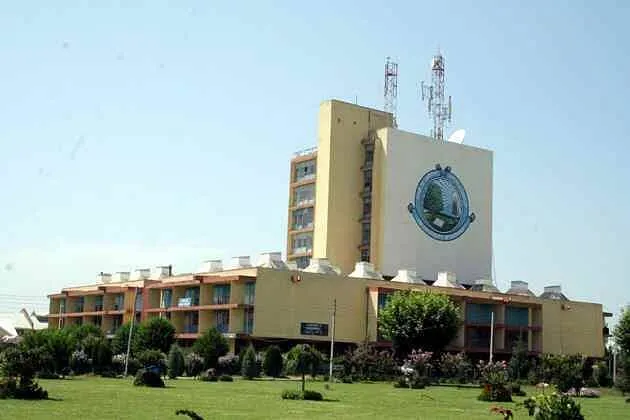The Kashmir University (KU) Vice Chancellor has started a new initiative through the Department of Students Welfare to interact with the students.
One of the major objectives of this ‘general student interaction programme’ is to address grievances of students related to their teaching and research and also to seek their suggestions to “take the University forward together”.
As per news reports, these student interactions will continue to be a regular feature of the Department of Students Welfare. Though it will be premature to comment right now on how this new initiative taken on directions of the new VC Prof Neelofar Khan will prove in the days to come, it is nonetheless a welcome initiative if it is really made outcome-based and result-oriented.
It is perhaps for the first time that Kashmir University has started engaging with the students, listening to them and taking their suggestions on a range of issues. The University seems to have realized (and there is no doubt about it!) that students are the primary and important stake-holders in the University.
The new VC must be knowing that it is a matter of fact that students of Kashmir University have been victims of the high-handedness of the authorities as and when they tried to raise issues related to academics and research.
They have hardly been heard in the past. It is also a fact that all is not well in their departments related to faculty, facilities and infrastructure. Many new departments don’t have adequate faculty and facilities.
There are issues in hostels. There are grievances related to fee structures in hostels and departments. Specially-abled students have their own grievances related to accessibility and job reservations. Research scholars have so many issues which aren’t taken care of. Their degrees are delayed by years. Supervisors of research scholars hardly listen to them and allow them to question anything.
Questions have in the past been raised with regard to fairness of recruitments made in the University and allegations of favouritism have often come to the fore. Overall, it can be said that students and research scholars have grievances which need to be addressed with all seriousness.
If the University’s VC does not listen to them, then who will listen to them? What kind of important stake-holders will the students think of themselves if doors of VC office will remain shut for them? Academic institutions must have free spaces where students can express themselves and voice their concerns fearlessly.
Therefore this ‘general student interaction programme’ can be highly beneficial for the University authorities to remove the disconnect with the students and earn their goodwill.
In several universities in the world, as also in the country, students happen to be part of decision-making processes. They happen to be part of fee determining committees, hostel committees, landscape committees and even important decision-making bodies.
The University of Kashmir can easily replicate such a mechanism if it really means business. It can make students an integral part of the University administration so that the administration and the students move ahead hand-in-hand in taking the University forward as has been assured by the new VC.
The University can score well with such pro-student initiatives in its next NAAC accreditation which is due in 2024 because lot of emphasis in NAAC is on student perception of the institution and their involvement in decision-making. Their feedback counts a lot and therefore it has to be acted upon.
At the same time, the Kashmir University VC should engage with senior faculty members cutting across disciplines and departments, rising above any personal likings and dislikings.
If the University’s VC remains recluse and averse to engaging with faculty and senior colleagues, howsoever critical their views may be about certain issues, it will only widen the disconnect between the VC and the faculty which will in turn impair the functioning on the University and reflect negatively on the image of the VC.
The VC must therefore hold frequent interactions with senior faculty members, take them on board in decision-making, seek their feedback and remove misconceptions harboured by the faculty members about the intent and working of the Vice Chancellor.
It has been seen that many faculty members in Kashmir University have had their grievances related to their departments/promotions etc which were not listened to by the authorities previously.
With the result, they were forced to agitate against the system and find ‘justice’ outside the University. The new VC can put an end to such discords by frequently interacting with the faculty members and taking action on the feedback received by them.
To conclude, these interactions with students and faculty can earn a lot of goodwill to the Vice Chancellor who appears to be serious in making the difference in the University. However, a lot will depend on how swiftly the grievances of students are addressed by the authorities within the stipulated timelines.
That’s the only way to sustain this initiative and make it fruitful and productive. Otherwise students and society both will lose faith in such initiatives which will be remembered as a cosmetic exercise in absence of any tangible action on ground. For now, we can safely say that the new VC is on the right track.







